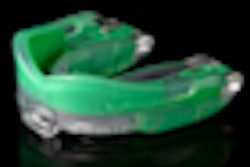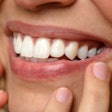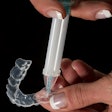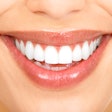Most American children don't wear mouthguards while playing sports that pose a risk of injury to the mouth, contrary to recommendations made by dental professionals.
That's one of the key findings from the 2011 Delta Dental Children's Oral Health Survey, conducted by Morpace on behalf of Delta Dental Plans Association. Morpace conducted email interviews nationally with 907 primary caregivers of children from birth to age 11. (For results based on the total sample of national adults, the margin of error was ± 3.25 percentage points with a 95% confidence level.)
"Mouthguards do more than protect young athletes' teeth. They can also help prevent concussions by acting as shock absorbers," statedWilliam Kohn, DDS, vice president of dental science and policy for Delta Dental, in a news release. "Studies show that concussions can cause serious, long-term consequences for athletes, and the majority of at-risk athletes are children."
The U.S. Centers for Disease Control and Prevention estimates 300,000 people get sports-related concussions a year, with children and teens at the highest risk.
Although mouthguards are only mandatory for some youth sports, such as ice hockey, football, and lacrosse, dental professionals recommend they be worn for all athletic activities in which there is a strong potential for contact with other participants or hard surfaces.
But 68% of Americans report that their child does not wear a mouthguard at soccer, basketball, baseball, and softball practices or games. And studies show that today's basketball players are 15 times more likely to sustain an orofacial injury than football players, according to the Academy of General Dentistry.
Mouth injuries in football have dropped dramatically since mouthguards became mandatory, Delta Dental noted. More Americans report that their child wears a mouthguard for football than for any other sport. However, even in football -- a sport requiring protective gear -- only 70% report that their child wears a mouthguard at both practice and games.
And only about 44% say that their child wears a mouthguard for hockey practice and games, which is also mandatory. Even more alarming, 22% of children only wear a mouthguard at games, not practice. And according to Safe Kids USA, most organized sports-related injuries occur during practice rather than games.
"Parents need to encourage their young athletes to get in the habit of wearing mouthguards whenever they participate in sports, whether it's for practice or a game," Dr. Kohn said.



















